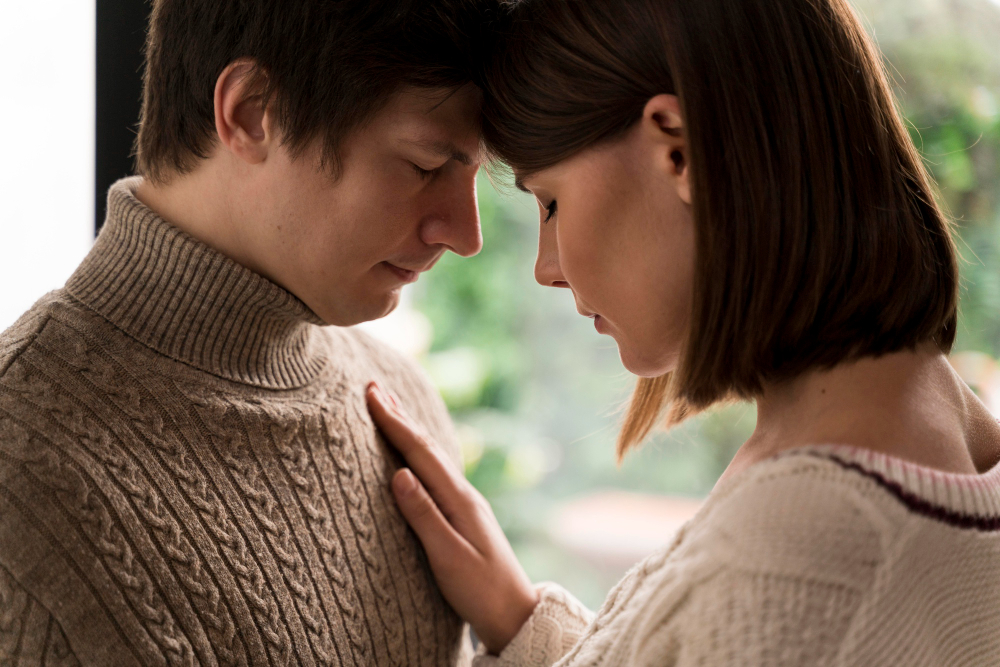Vulnerability as the Core of Relationships

Relationships can be both profoundly beautiful and incredibly challenging. One of the often-overlooked keys to building and maintaining meaningful connections is vulnerability. While society often equates vulnerability with weakness, it is, in fact, a profound strength that forms the foundation for trust, intimacy, and emotional connection. This blog will explore why vulnerability is essential in relationships, how it impacts the way we connect with our partners, and steps you can take to foster vulnerability in your own relationships.
If you're seeking relationship therapy in Orlando, FL, we’ll share how professional guidance can help you strengthen this critical aspect of your connection.
What is Vulnerability in Relationships?
At its core, vulnerability is the willingness to be open, honest, and authentic, even when it feels uncomfortable. It means letting down your guard and sharing your thoughts, emotions, fears, and desires without fear of judgment or rejection. Vulnerability is the act of showing your true self, flaws and all, in the hope that your partner will respond with acceptance and empathy.
Why does this matter in relationships? Vulnerability creates an environment where both individuals feel safe, seen, and valued. Without it, misunderstandings can quickly escalate, and emotional walls can prevent genuine intimacy from forming.
Signs of Vulnerability in Relationships
- Sharing your fears, doubts, or insecurities without hesitation.
- Admitting when you’re wrong or when you’ve made a mistake.
- Discussing personal dreams, life challenges, and unfulfilled needs.
- Expressing love, affection, and gratitude honestly and often.
The Link Between Vulnerability and Strong Relationships
Research consistently shows that vulnerability is essential for building healthy and meaningful relationships. Dr. Brené Brown, a leading researcher on vulnerability, highlights that vulnerability is the birthplace of connection and trust. Without it, the emotional bond between partners remains shallow, and opportunities for growth diminish.
Here’s how vulnerability strengthens relationships:
1. Promotes Emotional Intimacy
When we’re vulnerable, we allow our partners to understand who we truly are. This level of honesty deepens trust and fosters greater emotional intimacy. Emotional closeness often leads to stronger physical intimacy, as both are deeply intertwined.
2. Builds Trust
Vulnerability and trust go hand in hand. When one person is courageous enough to be vulnerable, it often encourages their partner to reciprocate. This mutual openness creates a trusting environment where both individuals feel secure.
3. Encourages Healthy Communication
Sharing honestly, even when it feels risky, can prevent resentment or miscommunication from festering. Vulnerability enables couples to address challenges before they become larger conflicts.
4. Strengthens Conflict Resolution
Vulnerability doesn’t eliminate conflict, but it does improve the way couples address it. When emotions are laid bare, partners are better equipped to understand each other’s perspectives and work toward resolutions collaboratively.
Common Barriers to Vulnerability
Despite its importance, many people struggle with vulnerability in their relationships. The barriers to vulnerability often stem from past experiences and deeply ingrained beliefs. If any of these resonate with you, know that you’re not alone:
Fear of Rejection
One of the biggest obstacles to vulnerability is the fear of being judged, rejected, or misunderstood. Society frequently conditions us to hide our emotions to avoid appearing weak or overly sensitive.
Past Wounds or Trauma
Experiences such as betrayal, abandonment, or emotional neglect can lead to self-protective behaviors that build walls rather than bridges in relationships.
Cultural and Gender Expectations
Messages like "men shouldn’t show weakness" or "women need to have it all together" perpetuate the idea that vulnerability is undesirable, when in fact the opposite is true.
Lack of Communication Skills
Some individuals struggle with vulnerability simply because they’ve never been taught how to articulate their emotions or connect on a deeper level.
How to Foster Vulnerability in Your Relationship
Becoming more vulnerable in your relationship is a process, not a one-time event. It requires practice, patience, and a mutual commitment to growth. Here are some actionable steps to help foster vulnerability:
1. Start Small and Build Confidence
Begin by sharing minor thoughts and feelings to create a foundation of openness. Over time, as trust grows, you’ll feel more comfortable discussing deeper emotions and experiences.
2. Cultivate a Judgment-Free Space
For vulnerability to flourish, both partners need to feel safe sharing their thoughts without fear of criticism or rejection. Practice active listening and respond with empathy.
3. Acknowledge Your Fears
It’s okay to admit when being vulnerable feels challenging. Sharing your hesitations can actually strengthen your bond, as it demonstrates a willingness to work through discomfort together.
4. Practice Self-Compassion
Vulnerability begins within. Be kind to yourself as you work on expressing your emotions, and allow yourself the grace to grow at your own pace.
5. Seek Professional Guidance
Sometimes, the road to vulnerability can feel overwhelming, particularly for couples navigating past wounds or communication challenges. Relationship therapy can provide the tools and strategies needed to foster deeper connections.
The Role of Relationship Therapy in Promoting Vulnerability
Relationship therapy focuses on creating a safe environment where couples can explore their emotions, share their fears, and address barriers to intimacy. For instance, at Orlando Thrive Therapy, we specialize in helping couples build healthy communication patterns, resolve conflicts, and create a foundation of trust and vulnerability.
Our licensed therapists use evidence-based techniques such as Emotionally Focused Therapy (EFT) to guide couples toward greater emotional connection. Whether you’re starting a new relationship or seeking to strengthen an established one, therapy can help you unlock the power of vulnerability to transform your bond.
Take the First Step Toward Greater Connection
Vulnerability is not a weakness—but a courageous path toward deeper, more meaningful relationships. By opening yourself up to your partner and creating a space where they can do the same, you’ll build a connection rooted in trust, intimacy, and shared growth.
If you’re ready to take your relationship to the next level, Orlando Thrive Therapy is here to help. Contact us today for more information or to schedule a session with one of our expert therapists.
